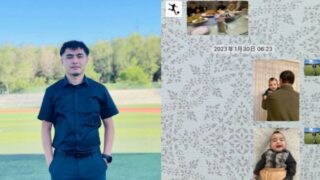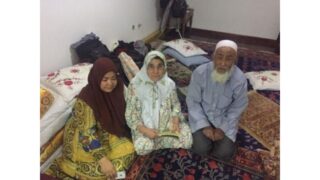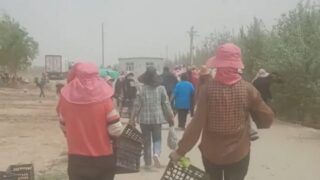Yesterday was the 33rd anniversary of the Barin Uprising. Today, a friend remembers an executed intellectual who was both a strict Muslim and a friend of the West.
by Kok Bayraq


Can a person or a community be both a strict Muslim and pro-Western? It seems impossible, but if I remember the Barin Uprising and friend, martyr Abdushukur Nurullah, I think it is quite possible.
As Bitter Winter explained yesterday, the Barin Uprising had broken out on April 5, 1990. Zaydun (also spelled Zaidin) Yusuf, the leader of the East Turkestan Liberation Party, and 200 other members clashed with 500 Chinese soldiers and captured the Barin Town Hall. The next day, 15,000 Chinese soldiers from the Southern Military Division arrived for reinforcements with tanks and 3,000 Air Force men. The conflict and raid continued for seven days, and the rebels managed to hold the municipality for two days with handmade weapons.
My friend, Abdushukur Nurullah, a Uyghur high school teacher and martyr, had said the following to us immediately after the Barin Uprising in Kashgar: “If this religion [Islam] gave these poor and needy people in the village of Barin the courage to fight against a brutality of China and the ability to unite a slumped people on the battlefield, despite being without proper education and military training for 70 years, then this religion is absolutely true and can be the light to our future.”
At that time, the Uighur youth, fed up with the propaganda of the Chinese Communist Party, worn out by colonial policies, and suffering from inhuman atrocities, needed hope and the belief that everything could change to keep their morale alive.
It is important to note that followers of Islam had been without a school in East Turkestan since the Chinese invasion of 1949. The Xinjiang Islamic Institute, which was opened just for an exhibition in Urumqi in the 1980s, in addition to having low student numbers, aimed at the Sinicization of Islam. Uyghurs could only learn about Islam through family education. In addition, due to the spread of communism in the 20th century, scientific developments, and the collapse of the Islamic Caliphate–Ottoman Empire, there were weak religious beliefs among Uyghur intellectuals (which occurred throughout the Islamic world in general).
Among our Uyghur friends, Abdushukur Nurullah was someone who had strong faith. In our conversations, he would tell the truth about religion and at the same time speak according to scientific principles.
Despite the high losses for the Uyghurs, the spirit of the Barin Uprising gives the Uyghurs courage, hope and determination against Chinese oppression After the uprising, new content was added to Abdushukur’s “preaching.”
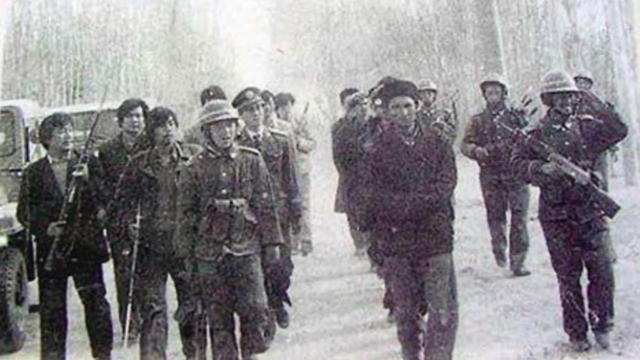

He was always stating that, “Islam is, for us, not only a stronghold to protect ourselves from assimilation, but also a powerful weapon to fight against colonialism. Our brothers in the village of Barin have once again manifested this role of our religion with their courage, patriotism, and a spirit of self-sacrifice that did not fear death.”
In a conference organized by the Chinese government in the mid-1990s, it was stated that the “Barin Riot” was carried out by a group of “ruffians,” “villains” who had been influenced by an “extremist” clergyman named Ablikim Mehsum Hajim, who belonged to the “Wahhabi” sect. Abdushukur, who attended a meeting representing the young teachers of Khorgas No.1 High School at that time, said the following in a private conversation with us in a hotel’s conference room: “A thought or theory, regardless of its name or sect, [which] created history in the shape of ‘The Barin Uprising’ is highly advanced in my view. When a sect, no matter where it came from, has been able to awaken our people against oppression, it is modern (beneficial). Whoever the creator of that idea is, he is a great and noble man in my heart.” He continued, “As an intellectual of an oppressed people, for me, regarding what is right and wrong, black and white, beautiful and ugly, [just] and unjust, there is only one measure, and that is how to stand against China. Anyone who does not dislike or who supports the murderer China, whether a scholar, politician, or a star in any field is, in my eyes, a selfish disgrace and a fool.”
His favorite scientist was Albert Einstein, and his favorite political system was American democracy. At the same time, his most cited book was Sayyid Qutb’s Milestone, the text of a strict Muslim, of which he appreciated the advocacy for worshiping and fearing only God.
He repeatedly stated, “The Chinese state, led by the Chinese Communist Party, is an extraordinary enemy to us and the entire world; it is impossible to defeat it with ‘moderate’ ideas and stances from the West; it can only be defeated with the West’s advanced weapons. We need a radical idea and a strong friend.”
“I think an organizer who develops this awareness and unites the people in this idea can be a national leader for us, he said. Those who distanced themselves from Islam in our society cannot represent the interests of the Uyghurs, nor do those who turn their backs on the West. Uyghurs can become a symbol of unity between religions and cultures around the world.”
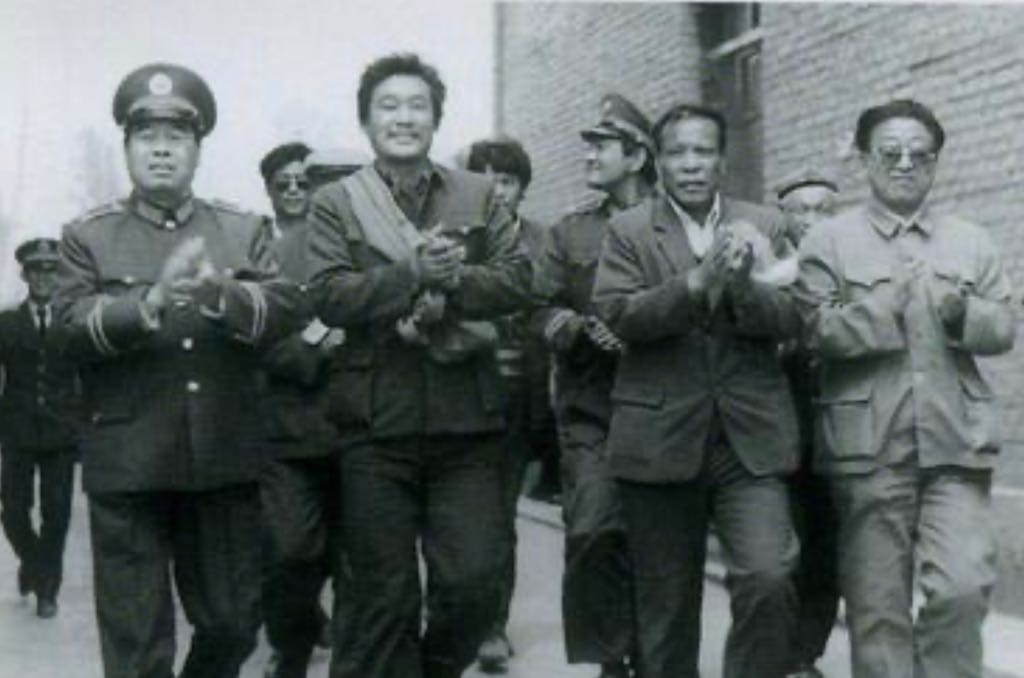

During the Barin Uprising, more than two hundred fighters and civilians were killed in a seven-day battle that followed the raid. In August 1990, the government held four trials and doled out sentences for long periods, life, and even death to 103 rebels from the uprising.
After October 1995, I lost contact with Abdushukur Nurullah. He was arrested in the autumn of 1998 along with 36 compatriot and comrades and he was sentenced to death in 1999, along with seven others.
I heard that when he was allowed to meet with a relative before his execution, he said, “Don’t cry. If you cry, you will make the enemy happy. My wife and daughter are entrusted to God first, and then to my people. I believe that they will not be disgraced. I beg you, be pleased with me. I will be pleased with you forever.”
Chinese authorities, who have always kept the names and activities of these comrades confidential, gave the following clues about Abdushukur’s case while blaming a reporter from Radio Free Asia at a press conference in Urumqi on May of 2021: ” In September 1994, Shohret Hoshur teamed up with Abdushukur Nurullah (the main criminal of the ‘7.14’ violent terrorist bombing in 1997, who was sentenced to death according to the law) to defraud a Hainan company … suspected of fraud crime…” There are various stories of heroism in the community about the actions of Abdushukur and his comrades against China, but there are no single reports in the official press, except the single line above. Abdushukur was a good educator; although he studied chemistry as a profession, he remained committed to politics. He took as his customary task to tell his students and friends the difference between Western and Chinese imperialism. He insisted that the original ideal of Western colonialism was a commercial monopoly while Chinese colonialism was a genocide that, if not resisted, would result in carnage.
He was not content with proclaiming his thoughts, but showed that he truly believed in them with his virile attitude, especially in face of death, which he confronted with bravery just like the Barın rebels.
A few years ago, in the Uyghur internet world, accusations of “looking too radical” were posted against women in black dresses , thinking they did not represent the majority of our people and gave the wrong impression to the West, As one of the deceased Abdushukur’s close friends, I replied as follows: “The West is not against the black dress, but against imposing it on others; the West respects those who kept their own identity, not those who imitate the Westerners.”
My comments were widely shared. If there is any value in them, the honor belongs to the Barin revolutionaries and my martyred friends like Abdushukur Nurullah.
Abdushukur Nurullah and the Barin rebels will live forever in the hearts of the Uyghurs, like thousands of other heroes.



